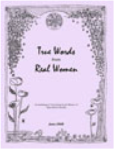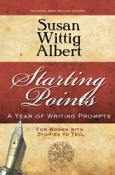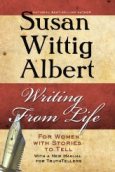
Happy New Year! Get Ready For Your Best Writing Year Yet! – Part 1 17
“There is only one thing that makes a dream impossible to achieve: the fear of failure.”
― Paulo Coelho, The Alchemist
WHAT DO YOU DREAM OF being or achieving in your writing life? As the calendar flips to a new year, are you looking forward to new opportunities to bring those dreams to life?
Movies and fairytales aside, we know that dreams aren’t fulfilled by wishing upon them. If you want to achieve your dreams, you must do more than dream. You must set the full focus of your will — your intention — on what you want, and then you must act. Put another way, you can only arrive at your desired destination if you pack your bags and get on the road.
Today, I’d like to invite you to think about where you want to go and how you will get there. No matter the level or extent of your writing desire — from wanting to establish a journaling or creative writing practice to finishing that memoir or novel you’ve been working on — it’s all doable. And I can show you how.
To that end, over the next few posts I’m going to share with you what I do each year to set and accomplish my goals — and why my process works. I use these steps to set goals for all areas of my life, including writing/publishing, spiritual, relationship, emotional, physical/health, and financial. And I achieved 95% of my personal and professional goals this last year.
For this series, I’m going to focus on only one area: writing/publishing. You may choose to separate writing and publishing into two separate goal areas. For me, these tend to blend together, so I think of them as one.
You’ll need to arrange a quiet place and time to work through the following exercises. The time needed will vary, but I would give myself at least an hour to start. And you don’t need to do this all at once — you can take several sessions.
Ready? Let’s get started . . .
(1)
Set your overarching intention (focus) for the year.
Our goals do not live in a bubble of their own, outside the totality of our lives. If we want to grow in any area of our lives, we need to understand what we want most and who we want to Be in the world. So before forming goals for any area of your life, get out your journal and freewrite your answers to the following questions:
- What quality to I want to infuse into my life and into all my decisions this year?
- What quality do I need most in my life at this time?
Once you have written about what you want in your life, choose the quality that resonates most for you and distill that quality into one word.
This word will be your guiding principle, your focus of intention for the year.
Last year, my guiding principle was “balance.” I wanted (and needed) more balance between the personal and professional areas in my life. Keeping my focus on balance all year helped me make important decisions along the way, including what to keep and what to let go of doing. It gave me permission to take better care of myself and my relationships.
This year, my overarching focus is “perspective,” which is about seeing the bigger picture and seeing things from different angles, as if from an eagle’s point of view.
(2)
Write down your “big rock” goal.
You’ve probably heard of the “big rocks” concept, made famous by Stephen R. Cover, author of The Seven Habits of Highly Effective People. The idea is that your life is like a glass jar that you fill up with all of your daily tasks, both important and routine. The important tasks are your “big rocks” and the routine, less important tasks are like pebbles. If you fill your jar with pebbles, you won’t have any room for your big rocks. But if you place your big rocks in the jar first, then you’ll be able to fill in the spaces with the pebbles.
At the top of a new journal page, write your answer to the following question:
If I could achieve just ONE thing in my writing life this year, what would it be?
What would be the one thing you would feel happy achieving as a writer, even if you accomplished nothing else?
Be specific. “Writing more” is not a goal — it’s a wish. In order for a goal to have power, it must be SMART, which is an acronym for the following characteristics: Specific, Measurable, Actionable, Rewarding, and Time-dependent (or Trackable).
Goals can include either accomplishing something or establishing desired habits. I will give examples of both types of goals as I explain each aspect of a SMART goal.
In order to be SMART, your goal must answer the following questions:
- What, specifically do I want to accomplish? OR What habit do I want to establish?
–
Achievement goal: Last year, the What of my “big rock” goal was to “complete my second memoir, Accidental Jesus Freak,” which I’d already been working on for a year and a half. Your goal might be to “write three personal essays” or “publish two short stories,” or “write 30,000 words.” Do you see how specific your goal needs to be?
–
Habit goal: But what if you don’t have an achievement type of goal like those I’ve just described? What if you really just want to write more often? This type of goal — establishing a habit — is just as valid as an achievement goal. And it also needs to be stated in a very specific way. In this case, the What is, simply, “to write.”
– - When do I want to accomplish it by? OR How often do I want to do this habit?
–
Achievement goal: The When for my memoir was “by December 31st.” Yours could be “by June 30th” or any other date you choose.
–
Habit goal: Using the example above, I might want to write “a minimum of 30 minutes per day, 5 days per week,” or “5 minutes per day, 7 days per week.” Again, do you see how adding this level of specificity helps to define exactly what you will do?
– - How will I know when my goal is complete?
–
Achievement goal: You need to define what constitutes “done.” I defined completion of my memoir as when it had been edited, proofread, and was ready for print and ebook formatting.
–
Habit goal: In the case of a habit goal, define when you will consider the habit as integrated into your life. So, for my writing habit, I might define it as: When I have consistently written 30 minutes per day, 5 days per week, for six months, I will consider that I have established this habit.”
–
“The starting point of all achievement is DESIRE. Keep this constantly in mind. Weak desire brings weak results, just as a small fire makes a small amount of heat.” ― Napoleon Hill, Think and Grow Rich
–
- Why do I want to achieve this goal?
Your Why, your motivation for wanting to accomplish this goal is SUPER important. Without strong motivation, you will not achieve your goal.
My Why for writing Accidental Jesus Freak included the following:
– I want to feel proud of myself for having completed this second book.
– I want to reveal the deeper, inner truth of my journey, discover its universality and what it has to teach me and others
– I want to have it ready for launch in March of 2018
What are your Whys? Write them down below your What, When, and How statements.
–
- How will my focus of intention help me to achieve my goal?
–
This question might be a little harder to answer, as our goals don’t always have an easy correlation to our broader focus of intention. In my case, focusing on balance helped me stay the course on my one big writing goal for the year. I had other goals, but focusing on balance helped me to adjust my activities throughout the year and still accomplish what needed to be done.
–
If you’re having difficult answering this question, set a timer for 10 minutes and freewrite, starting with the following fill-in-the-blanks prompt: “My focus of intention on __________ will help me accomplish my goal of ___________ by ____________.
This is the first of a 12-part series on writing goals and productivity. In Part 2 of Get Ready for Your Best Writing Year! We will cover how to establish your goal’s action plan as well as how to keep your goal visible and in front of you on a regular basis.
Amber Starfire offers coaching, classes, and books about writing at writingthroughlife.com






Thank you, Amber. On the new moon I was writing out my plan for the year when I read part 1 of your series. It has helped me focus and set my goals, and made me feel as though I have a partner in the sometimes lonely writing life. My focus is diligence. My guiding principle is confidence in myself and my abilities. I will finish and publish my memoir, An Unfinished Woman, by October 31, 2018. I look forward to part 2. Jan Golden
That’s both an awesome focus and goal, Jan. I look forward to hearing more about your memoir as you progress.
Thank you Amber. I had kept this post till just the right time to read and absorb fully. I am nestled high in the mountains about a nine hour drive NE from Vancouver. Fierce winter conditions yet the fire is warm and the porch I am caring for (Walter) wonderful company while friends are in Mexico. Intention is so important. Mine is wellness. The guiding principle to support this is self-love. Like most I have a story within to tell. This is the year in which I turn 60 so “if not now … when?” My goal is to have a self-published book in my hands by December 10. I am no longer fearful of spilling me onto the page. With gratitude for your teachings.
And of course I meant to write pooch not porch!
Thank you for sharing your intention of wellness and self-love — both so important to living a full and intentional life. And kudos for releasing your fear and allowing yourself to write your life! I look forward to hearing more about your journey.